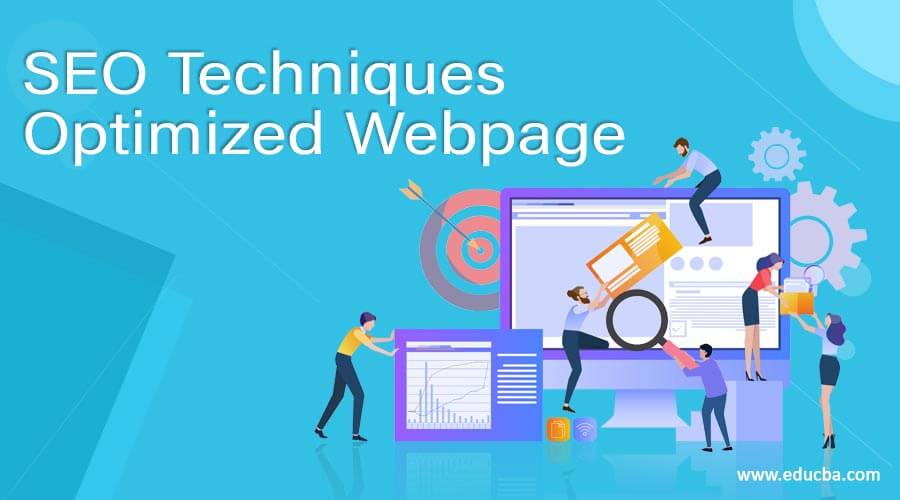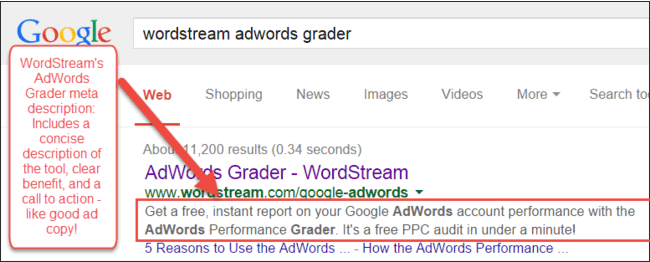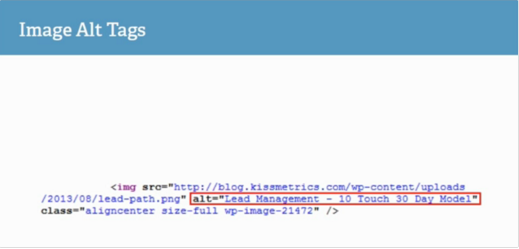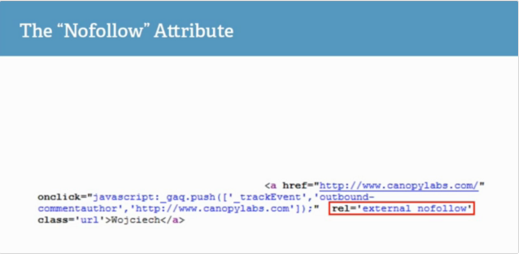Updated June 15, 2023
Introduction to SEO Techniques Optimized Webpage
SEO techniques optimized is defined as the process used to improve the visibility of a website in search engines to achieve more potential customers for the business. This simple definition will not help you to answer your questions like
How do you optimize your site for search engines?
How much time do you need to spend on SEO techniques?
Which SEO toolboxes are good and which are terrible, and how can you tell?
Interestingly, you can leverage your SEO audit tool to get more traffic, leads, sales, and, in turn, more revenue for your business.
Why is SEO Techniques Optimized Webpage Important?
Let us discuss why it is important.
- People keep on searching for things in search engines. Such traffic can be very powerful because it is very specific and has high intent traffic.
- SEO techniques will help you to position your site at the most critical place in the buying process or whenever someone needs your location.
- SEO techniques will help to create a seamless user experience. It also communicates with the search engine so that the search engines will recommend your website for relevant searches by the searchers.
- If you are viewing a page, how do you know whether the page is suitable for the SEO toolbox?
- Do the page all the attributes search engines look for in a page?
- If you don’t know the answer to this question, then this article is meant especially for you.
The Mad Hatter Is Definitely Rather Loony
This is a famous acronym related to the SEO audit tool, which will help you remember the basics of SEO to make the search engines find your site more easily and drive more traffic. The explanation for this acronym goes like this.
T – Title tag
M – Meta Description and Keywords Tags
H – Header Tag
I – Image file names and alt tags
D – Diverse keywords
R – Relevancy
L – Links
Let’s look at all these factors in detail one by one
Keyword Research
First thing first. The most important step in SEO techniques is finding the keywords to optimize your site. Do keyword research and identify the most common terms people use for searching in search engines. Select the keywords relevant to your business and for which you want to rank your website in search engines. Keyword research sounds very simple, but it is a tough job and involves many factors mentioned below.
- Search volume – If the search volume for a keyword is high, then you can reach a large audience by selecting that keyword.
- Relevance – Focussing on direct keywords is important. But also try to focus on keywords that are relevant to your business.
- Competition – If the competition for a particular keyword is too high, you must spend too much to get that keyword. So select a keyword that has less competition and, at the same time, can bring more traffic to your site. Be smart
The next step here is to understand the target customers. You should know who your customers are, what they are interested in, where they are from, what solution they need, and where else they are purchasing the product or service. These will help you select the best keyword for the SEO audit tool.
Many tools are available to help you with keyword research, like Google’s Keyword tool, Word stream’s keyword tool, or Ubersuggest. You can also use specific keyword tools to determine which ranks the best for your competitor.
On-Page SEO Technique Optimized Webpage
Let’s discuss few basic on-page elements which will help you to drive more traffic to your site.
1. Title Tag
This is the most important element of any web page. Make sure you include only one title tag for the single web page. You can have the keywords and terms in your title tag for which you want the search engine to rank your site. The title tag is not that which appears as the primary headline, but it is the one that appears on the top of your browser.
The title tag should be at most 60 characters. It should be in a natural and compelling tone. Your title tag is the one that shows in the SERPs. So this should always be more attractive and relevant to bring visitors to your site.
2. Meta Descriptions
The next important element is Meta description, another code inserted in the head of a page. But it is not shown on the actual page as the title tag does. A meta description is a page description containing a brief description of that page of the site. Some companies copy the meta description of the site’s home page to all the other pages, but it ends up in duplicate content. Meta description also shows in SERP, which makes the browsers click on your site and increase the site traffic. Here comes an example of a meta description showing in SERPs
3. Content
Always write content for people first and then the search engines. Create quality content and avoid duplicate content on your site. Include contents on each page that are relevant to the page. Use your keywords in your content but keep it manageable. Search engines will recognize quality content. There are a few important things to remember while creating content for a page.
- Thick and Unique Content – Take note of your word count. You are in trouble if the page’s content needs to be longer or duplicated. Write at least 250 words per page because the tactic is if you are writing content for an appropriate length, then the SEO audit tool thinks that you should have included more relevant terms to the keyword.
- Engagement – Making the customers engaged with your site and improving the user experience should be the main aim of your content. Ensure your pages load quickly and do not have too many design elements.
- Shareable – Write content that makes people share it on social network sites like Facebook, Twitter, Pinterest, and others. To gain readers. It will help you This will signal to the search engine that your site has quality content. It will signal content to Reddit, Delicious, Digg, and others.
4. Heading tag
The heading tag or H1 tag is the main heading of a page. There should be only one H1 tag for a page. It should act as a hook for the visitors. Try to use your keywords in header tags because search engines access them as the least ranking factor. Though it carries less weight, it can also count greatly regarding your site ranking. To avoid copying the title tag into the heading tag. Make the content more natural and inviting.
5. Image file names and Alt tag
How you mark your images can impact how search engines view your page. Image alt tags are another important tag. An example of the image tags is as follows.
The alt tag will tell the search engine what it is about. A description of the image can improve their perspective in the search engines. Do not stuff your image description with keywords. Also, save the picture in a file with a relevant name to the image. Alt tags cannot use for decorative images.
6. URL structure
Use SEO-friendly URLs. The URL structure of the site is very important from a tracking perspective and a sharing perspective. Your URL should be short and descriptive. It should be easy to copy and paste, and the visitors should be able to remember it easily. So don’t make it more complicated. Don’t change your URLs. If you need to change the URL structure, provide a proper redirect to the site.
7. Link Building
Linking is still considered an important ranking factor. If you don’t have links on your site, then your site will not show up in search engines. High-quality links drive more traffic to the site. There are many ways to get links to the site, but as the search engine algorithms are updated frequently, this has become riskier now.
You can get links to your pages from other trusted sources. For example, you might be dealing with a supplier with a website, and you can ask him to link back to your page. But do not exchange links.
Outbound links also help the search engine find out what your page is about. It also believes that the content on the page is of high quality.
Get links to your site from reputable sites, and that will make your site more authoritative and trustworthy.
8. Anchor text
Anchor text using descriptive text as a link to connect to a page on your site. For example, “Here is the link to connect to my website” is the anchor text. Search engines also concentrate on the anchor text, so be cautious in creating anchor text. It tells the search engine what the page is about. Google uses it as one of its algorithms to rank the site. Always remember that you should not stuff your keywords in the anchor text.
9. Nofollow links
Nofollow links are used inside the anchor text, as shown in the picture below.
This attribute tells the search engine not to follow the link to the next page by considering it a link juice. It is used most commonly in the comments section of blogs to avoid spam users. In this way, you can direct the search engine towards the pages which you think are more important.
10. Canonical tag
Canonical tag came up recently and has become more important. The canonical tag tells the search engine which page they should pay attention to. In this way, It is possible to prevent duplicate content. Canonical tags can also identify who uses your content on their website and direct it to your site as the source. Canonical tags can also use to set a preferred URL for your content.
11. Diversity
Try to use your primary and secondary keywords in your content. It makes the search engine feel the content could be more optimized with keywords. It also makes your content readable, understandable, and interesting. If you make your content more interesting for the visitors, you can engage them more with your site. A decrease in bounce rate will make the search engine feel that the site is more trustworthy.
12. Page speed
Search engines have now added the site’s loading speed in their algorithm to rank the website. Not only the search engines but even your visitors are interested in fast-loading sites. If the user experience increases, it will increase your site’s conversion rate. The site’s speed gets affected by certain factors like javascript, graphical images, size of the content, and others. Google has developed a tool to suggest what to change to increase the speed of the site.
13. Mobile friendly
Optimize your site for mobile devices. Test whether your site is working properly on all mobile devices and smartphones. Make changes to your existing site, like changing the contents, size of the content, page length, etc., to make it mobile-friendly. There are also tools to test whether the site is mobile-friendly. Making your site mobile-friendly will have a great impact on the ranking of your site.
Conclusion
Stay abreast of the technological changes in SEO. SEO techniques keep changing. The factors considered more important in 2015 will not be assumed that important in 2016. What looks more important now might become less important in the future. So keep updating your site as the algorithm of the search engines changes.
Recommended Articles
This has been a guide to SEO techniques Optimized Webpage. Here we have discussed the techniques optimized that are used to improve the visibility of a website. You may also look at the following article to learn more –








